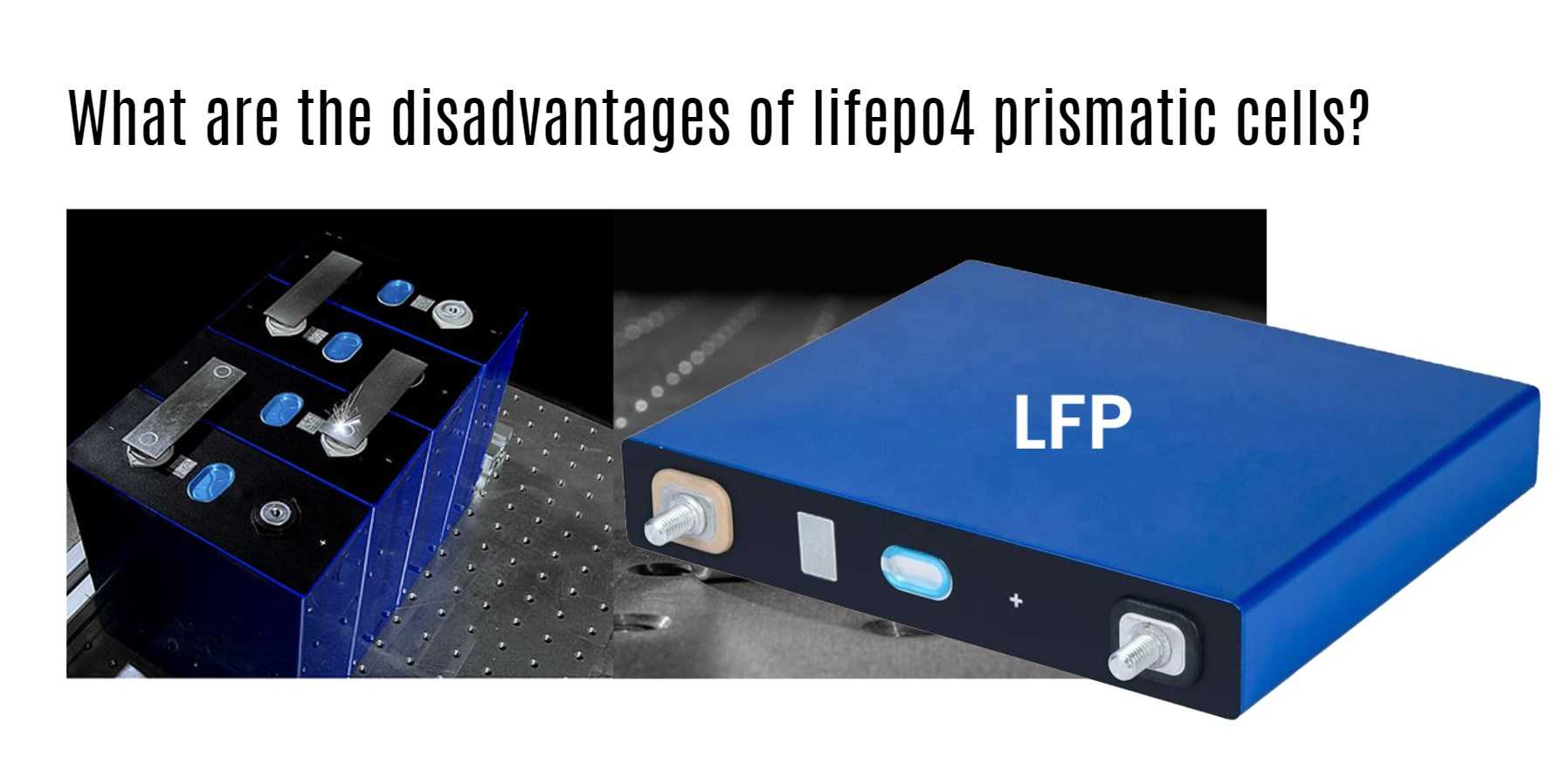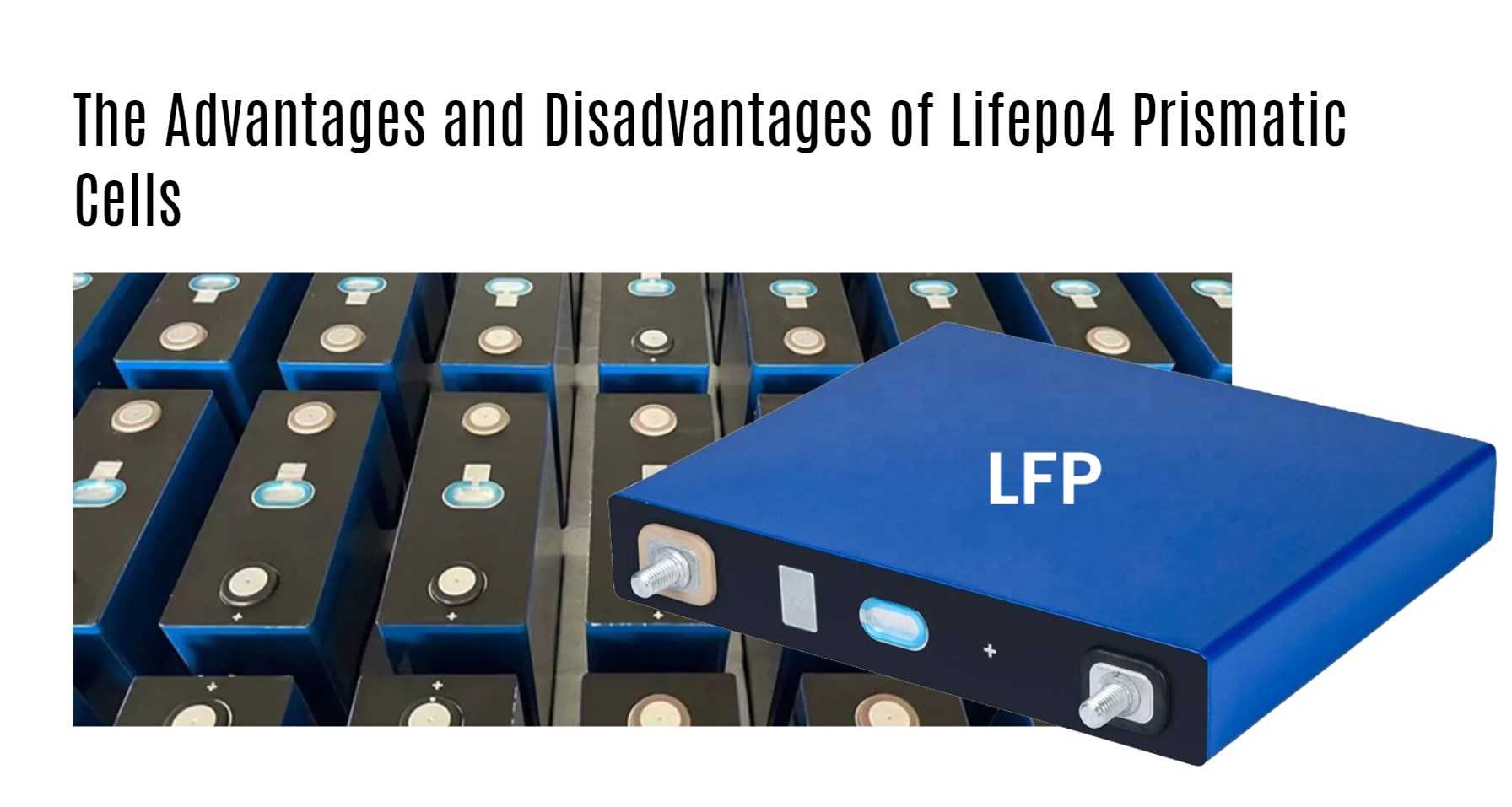Are you looking for a reliable and long-lasting energy source for your electronic devices? Look no further than lifepo4 prismatic cells! These advanced batteries are taking the industry by storm, providing numerous advantages over traditional lithium-ion options. In this blog post, we’ll explore what makes LFP batteries prismatic, their unique benefits, and whether they’re the right choice for your power needs. So sit back, relax, and let’s dive into the world of lifepo4 prismatic cells!
What are lifepo4 prismatic cells?
Lifepo4 prismatic cells are a type of rechargeable battery that use lithium iron phosphate as its cathode material. These cells have a unique prismatic shape, which sets them apart from other types of lithium-ion batteries. Unlike cylindrical or pouch-shaped batteries, lifepo4 prismatic cells come in rectangular shapes that make it easier for manufacturers to stack and arrange them into battery packs.
The term “lifepo4” refers to the chemical composition of the cell’s cathode, which is made up of lithium iron phosphate. This material offers numerous advantages over other types of cathodes, including higher energy density, longer cycle life, and better thermal stability.
One key benefit of lifepo4 prismatic cells is their safety profile. Compared to traditional lithium-ion batteries, LFP batteries are less prone to overheating or catching fire due to their stable chemistry and low risk of thermal runaway.
Lifepo4 prismatic cells offer many advantages over conventional lithium-ion options when it comes to powering electronic devices with high energy demands such as electric vehicles or solar panels systems.
Are LFP batteries prismatic?
LFP batteries are often referred to as prismatic batteries due to their unique shape and design. However, it’s important to note that not all LFP batteries are necessarily prismatic.
Prismatic cells refer specifically to the flat, rectangular shape of the battery cells. They have a consistent thickness throughout and are often used in applications where space is limited.
While many LFP batteries do feature these prismatic cells, there are also cylindrical and pouch-style LFP batteries available on the market.
Ultimately, whether or not an LFP battery is prismatic will depend on its specific design and intended use. It’s important for those in need of an LFP battery solution to carefully consider all options before making a decision.
What are the advantages of lifepo4 prismatic cells?
Lifepo4 prismatic cells have several advantages that make them an excellent choice for various applications. One of the main benefits is their high energy density, which allows them to store more power in a smaller space compared to other battery types.
Another advantage of lifepo4 prismatic cells is their long lifespan, lasting up to 10 years or even longer with proper care and maintenance. This makes them ideal for use in devices that need long-lasting power sources such as electric vehicles and solar-powered systems.
In addition, these batteries offer fast charging capabilities without compromising on safety or performance. They can be charged quickly without overheating or degrading over time, making them a reliable and efficient option for many industries.
Moreover, lifepo4 prismatic cells are also environmentally friendly since they do not contain any harmful chemicals like lead-acid batteries. They are also recyclable and reusable, reducing waste and promoting sustainable practices.
Lifepo4 prismatic cells provide numerous advantages compared to other battery types on the market today. Their energy density, longevity, fast charging capabilities, safety features and eco-friendliness make them a compelling choice for anyone seeking reliable power storage solutions.
What are the disadvantages of lifepo4 prismatic cells?
While there are numerous advantages to lifepo4 prismatic cells, it is important to also consider the potential disadvantages. One disadvantage of these batteries is their relatively low energy density compared to other lithium-ion batteries. This means that they may not be the best choice for applications requiring high energy storage capacity.
Another potential disadvantage of lifepo4 prismatic cells is their high cost compared to other battery types. While prices have been decreasing in recent years, these batteries still tend to be more expensive than traditional lead-acid batteries or even some other types of lithium-ion batteries.
Additionally, while lifepo4 prismatic cells are known for their long cycle life and stability, they can still experience some degradation over time which could impact performance and lifespan if not properly maintained. Due to their large size and weight, transporting and installing them may prove challenging in certain situations.
Despite these drawbacks, lifepo4 prismatic cells remain a popular choice for many applications thanks to their safety features and reliability. It’s important to fully evaluate your specific needs before deciding on any type of battery technology.

Are lifepo4 prismatic cells the best choice for you?
After going through the advantages and disadvantages of lifepo4 prismatic cells, it’s clear that they are a great choice for many applications. Their high energy density, long lifespan, and safety features make them an attractive option for those looking to power electric vehicles or store renewable energy.
However, whether or not they’re the best choice for you will depend on your specific needs and circumstances. It’s important to consider factors such as cost, size requirements, voltage output, and discharge rate before making a decision.
If you prioritize safety and reliability in your battery system while also needing a high-performing cell with excellent energy storage capabilities then lifepo4 prismatic cells could be the perfect solution for you.
FAQs
Do prismatic cells need to be compressed?
Compression of prismatic cells depends on the specific application and manufacturer’s recommendations. While compression can prevent bulging and improve contact, it may not be necessary in all cases. Factors like cell design, materials, and intended use should be considered. Consult the manufacturer’s guidelines and assess the requirements of your application to determine if compression is needed for prismatic cells.
What is the LifeSpan of prismatic LiFePO4?
Prismatic LiFePO4 cells can last up to 10 years or more with proper care and maintenance. Following manufacturer guidelines for charging and discharging, avoiding overcharging or over-discharging, and storing the cells in a cool and dry place can help maximize their lifespan. Regular monitoring of voltage levels and using high-quality chargers designed for LiFePO4 cells are also important. By following these practices, you can ensure the longevity and optimal performance of prismatic LiFePO4 cells.
Do LiFePO4 batteries degrade if not used?
LiFePO4 batteries may experience degradation if not used for extended periods. When not in use, the chemical reactions within the battery slow down, leading to the crystallization of lithium ions in the electrolyte. These crystallizations, called ‘lithium metal dendrites,’ can cause blockages and reduce the battery’s performance and lifespan. To prevent degradation, it is important to regularly charge LiFePO4 batteries, store them at the recommended temperature, avoid over-discharging, and protect them from moisture exposure.
How thick is the casing of a prismatic cell?
Prismatic cells, also known as rectangular-shaped lithium-ion battery cells, have a casing that is rectangular in shape. This design allows for efficient stacking of multiple cells in a battery module. The thickness of the casing of a prismatic cell varies depending on the specific cell model and manufacturer. Prismatic cells are commonly used in energy storage systems and electric vehicles, offering a balance between performance and durability.
Related Posts
- Will a 12V Charger Charge a 36V Lithium Battery? An In-Depth Analysis
- Why Might Button Cells Have Quality Issues?
- Why LifePO4 48V Batteries Are Best for Deep Cycle Use
- Why Is Buying CR2032 Safer at Brick-and-Mortar Stores?
- Why Choose a 24V LifePO4 Battery?
- Why 48V LifePO4 Batteries are Ideal for Solar Systems



